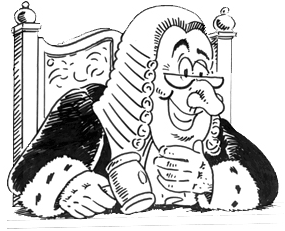
Sign Up for THE DAILY JUDGED VERDICT. Our daily newsletter covers law firm salaries and everything you want to know about changes affecting law firms from people in the know. Sign Up Now!
9.00
9.00
8.69
8.40
8.33
8.25
8.13
8.03
8.00
8.00
2.70
2.86
3.09
3.12
3.12
3.30
3.35
3.46
3.47
3.65

The Judge has grown weary of sulking in the shadows and letting the MeJDs and Chinaskis of Judged hog the limelight. Here you will find news about Judged, updates to our law firm rankings and the Judge’s daily ramblings. Want the real scoop? Check it out here.
The Judge has grown weary of sulking in the shadows and letting the MeJDs and Chinaskis of Judged hog the limelight. Here you will find news about Judged, updates to our law firm rankings and the Judge’s daily ramblings. Want the real scoop? Check it out here.
Top Performing Jobs
USA-NY-Mineola
DeSena & Sweeney is looking for an experienced attorney for our cases pending in...
Apply NowUSA-TX-Southlake
Beal Law Firm, an award-winning, 33 year old law practice dedicated exclusi...
Apply NowUSA-MA-New Bedford
Associate Attorney – Estate Planning, Elder Law & Estate Administration (D...
Apply Now
USA-CA-El Segundo
El Segundo office of a BCG Attorney Search Top Ranked Law Firm seeks an educatio...
Apply NowUSA-CA-Carlsbad
Carlsbad office of a BCG Attorney Search Top Ranked Law Firm seeks an education ...
Apply NowUSA-CA-El Segundo
El Segundo office of a BCG Attorney Search Top Ranked Law Firm seeks an educatio...
Apply NowDo you ever experience any physical danger in the courtroom? You do deal with all those criminals, right?
Sincerly,
Concerned Bailiff's Mommy
+ more Judged Dear
+ write to Your Honor

The Attorney Profile column is sponsored by LawCrossing, America`s leading legal job site.
|
Enter your email address and start getting breaking law firm and legal news right now! |













